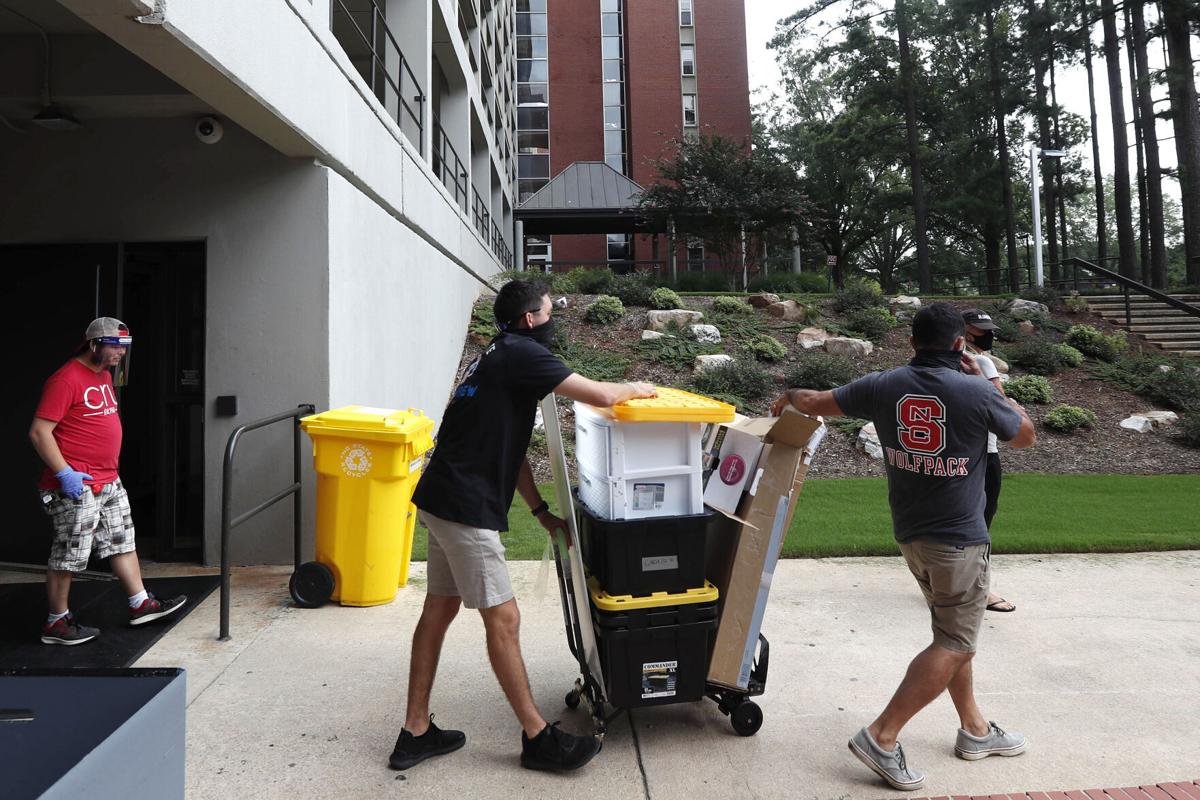
FILE – In this July 31, 2020, file photo, college students begin moving in for the fall semester at N.C. State University in Raleigh, N.C. Colleges are eager to share their reopening plans as they encourage students to return to campus. But fewer of them are talking about the elephant in the room: what happens if they need to shut down again.
https://apnews.com/2e0f0d026b0c396f12f8c96a202cab0f
#class_action_lawsuit if no #discount
Many colleges are welcoming students back for in-person learning and dormitory living this fall semester. Looming over everything: Campuses could shut back down at any time.
With COVID-19 cases still high, many colleges are developing shutdown contingency plans alongside their reopening arrangements.
At the same time, the pandemic is fueling new debate about whether colleges should charge the same tuition for online and in-person classes. Tuition typically covers the cost of instruction — salaries, software, labs and such — and that cost at many schools may have increased.
The University of North Carolina Wilmington, as an exception, has a different cost structure for online, hybrid and in-person classes. Still, it announced that students won’t receive a tuition refund if in-person classes move online this fall. And, after the pivot from it’s sister school at Chapel Hill, it told students to prepare for a similar transition if cases rise.
That leaves freshman Owen Palmer weighing the possibility that the education he is paying for may not be the one he gets. “I’m taking a risk because (the university) mentioned they can’t do refunds,” says Palmer. For him, the risk is worth it, but he does wonder what he’ll do if the campus has to close.
Here’s what he and other students can expect as the fall shapes up.
DON’T EXPECT A BREAK ON TUITION
Some schools have cut tuition. Hampton University is offering students a 15% discount, bringing undergraduate tuition to $12,519. Other schools are offering additional scholarships and grants.
But tuition decreases and additional aid aren’t the norm.
“If I had to make bets, I would say a lot of colleges will be (freezing tuition) until they get a better sense of the economy,” says Arun Ponnusamy, chief academic officer at the college admissions and application counseling company Collegewise. “But there will be other colleges that say, ‘We need money to run this school.’”
That may be happening already. George Mason University in Virginia approved a tuition increase of $450. The University of Michigan approved a 1.9% tuition increase. Both schools are planning a mix of online and in-person instruction.
MEALS AND HOUSING REFUNDS LIKELY
Many colleges aren’t publicizing their shutdown contingency plans — or how refunds will work. But students can look to how their school handled refunds in the spring to gauge how fall might play out.
Florida Agricultural and Mechanical University gave refunds for on-campus housing and meal plans, says William Hudson Jr., the school’s vice president for student affairs. If the campus has to shut down this fall, Hudson says the refund structure “would probably be the same.”
Other colleges also offered direct refunds for students. For example, Temple University automatically deposited partial refunds for room and board in students’ bank accounts. The University of North Carolina Wilmington gave prorated refunds for room and board.
But some colleges opted for account credit instead:
— The University of Arkansas refunded about 20% of room and board costs to student accounts. They haven’t announced an official plan in case of a fall shutdown, but staff members expect it’ll be the same.
— The University of Alabama offered a prorated refund for room and board, and parking. Students could take a cash refund immediately or apply that amount and an extra 10% as an account credit for the fall.